-
The Relationship Between Oral Health and Acne

Have you ever wondered if your teeth and gums could be plotting against your skin? Surprisingly, your oral hygiene is more connected to those pesky pimples than you might expect. Explore how keeping your mouth healthy can benefit your complexion.
Continue reading “The Relationship Between Oral Health and Acne”
-
Tips on How to Save Money on Your Oral Health
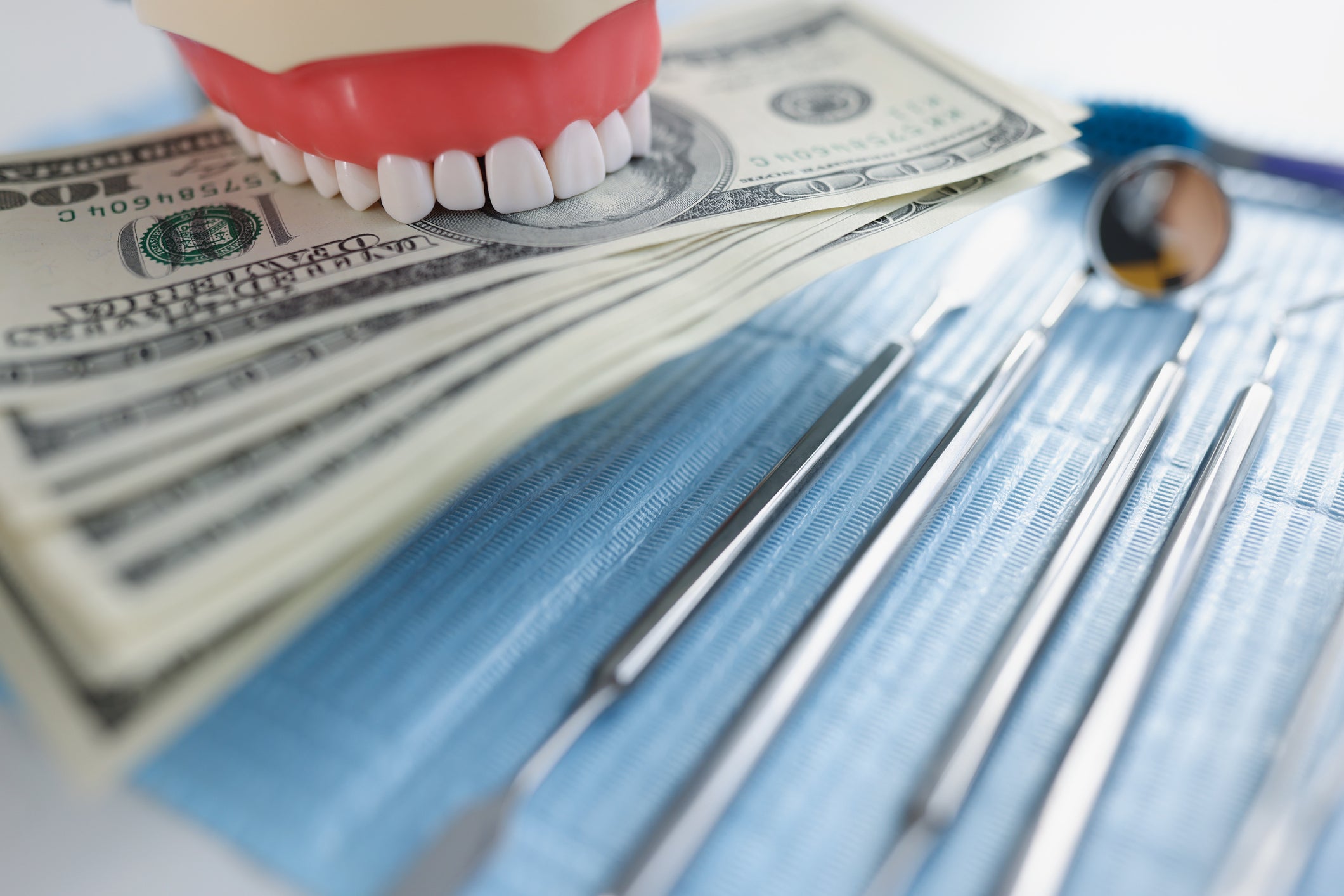
When it comes to saving money, few people think about their oral health care routine. However, there are several ways that you can save money on your oral health care without skimping on the quality of products that you receive. Here are a few tips to get you started.
Buy Products at Larger Supermarkets for Lower Prices
You can find good quality oral health products at your local supermarket for a fraction of the price you would pay at smaller stores. Look for brands that you trust and be sure to read the labels to make sure you are getting what you need.
Buy products from your dentist.
Sometimes it is worth it to buy directly from your dentist because they will be able to tell you exactly what you need so you don’t waste money on things you don’t. Dentists often have special deals or package pricing that can save you money in the long run.
Look at Your Local Pharmacy
Pharmacies stock oral health products and often have discounts and multibuys available. Many people don’t realize that pharmacies carry a wide variety of oral health products, and they are often very reasonably priced. Be sure to check the sale flyer before you shop so you know what deals are available.
Don’t Forget About Discount Stores
Discount shops such as dollar stores or discount department stores often have good deals on oral health products as well. Be sure to check the expiration date before you buy to make sure you are getting a good deal.
Practice Prevention
Preventive dentistry saves you time, money, and aggravation in the long run. Tips to avoid expensive dental treatments include brushing twice daily, flossing once daily, using mouthwash, and visiting your dentist regularly for cleanings and checkups.
Consider Your Diet to Safeguard Your Teeth
Eating sugary and acidic foods can damage your teeth over time and lead to cavities and other problems. Limiting these foods in your diet can help keep your teeth healthy and prevent costly dental treatment down the road.
Use Dental Insurance If You Have It
If you have dental insurance, be sure to use it! Most insurance plans will cover at least a portion of the cost of preventive care, such as teeth cleanings and X-rays. Regular preventive care can help you avoid more expensive dental problems down the road.
Look Into Dental Payment Plans When Needed
If you need dental work that is not covered by insurance, or if you don’t have insurance, ask your dentist about payment plans. Many dentists offer financing options that can make dental care more affordable.
Learn About the Child Dental Benefits Schedule
The Child Dental Benefits Schedule (CDBS) is a government-funded program that provides free or low-cost dental care for eligible children aged 2-17 years old. If you have kids, see if they qualify for the CDBS.
Why Choose Park 56 Dental in New York?
The team at Park 56 Dental is proud to offer our patients high quality, affordable dental care in New York in a comfortable and convenient setting. Our experienced staff is devoted to providing each patient with individualized attention and care. Contact us today to schedule an appointment! We look forward to meeting you soon!
-
Why it’s important to seek an Invisalign provider
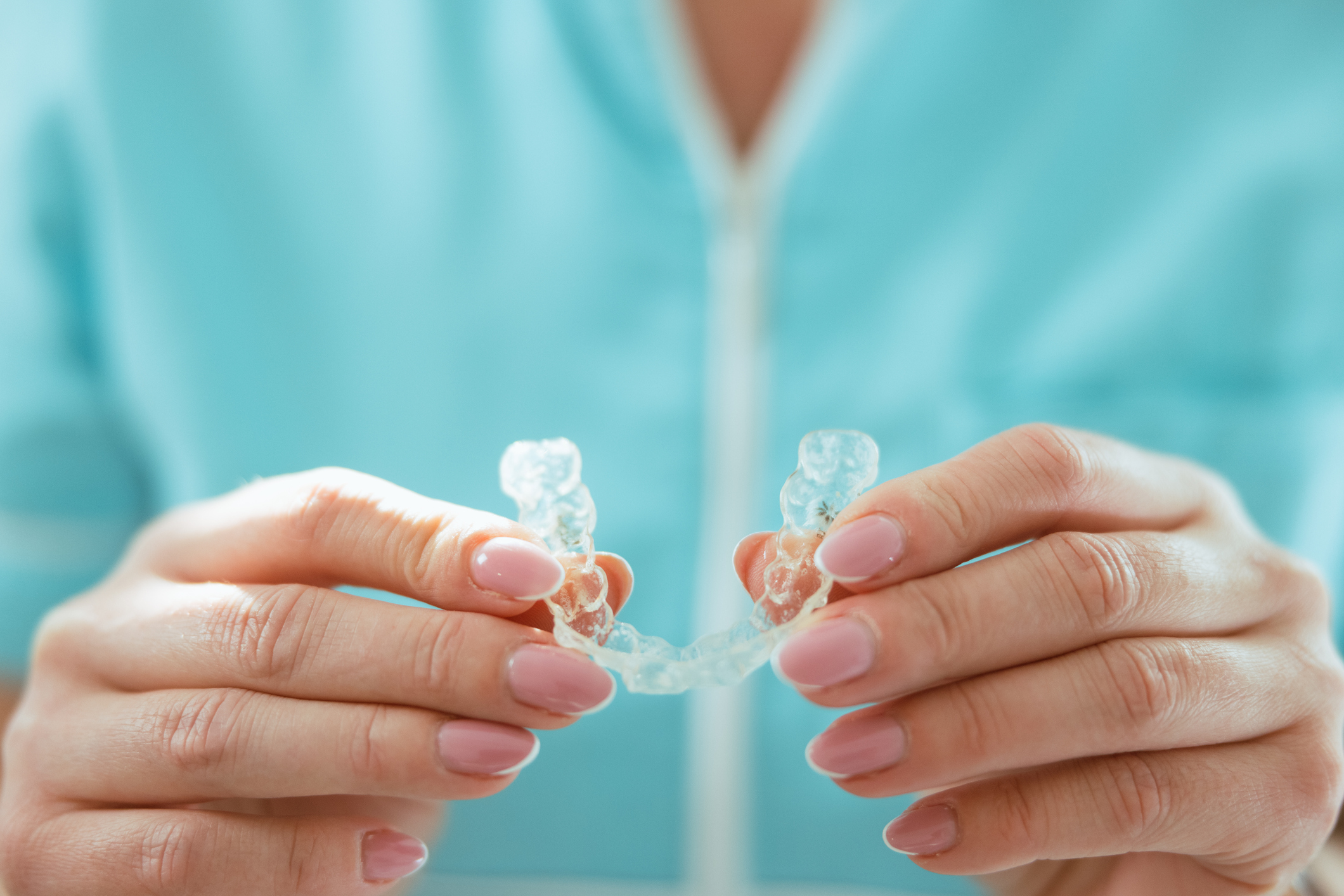
When Invisalign aligners came on the scene, they were a revolutionary idea. Suddenly, people could get beautiful, straight teeth without the hassle of traditional wire braces. Instead, using a series of nearly invisible, removable, comfortable, clear aligners, dentists could straighten teeth in less time than people spend in wire braces. Now, various companies have seized upon this idea and are flooding the market with at home straightening kits. Do they work, or is Invisalign still the right choice?
At-home straightening companies send the customer a kit to make a 3-D mold of their own teeth. This mold is submitted to the company, and a series of clear aligners are sent to the customer periodically. The patient never needs to visit the dentist or orthodontist, which allows these companies to charge far less than a patient would pay for Invisalign. In fact, one leading at-home straightening company estimates that their product is about 60 percent cheaper than traditional teeth straightening.
The problem with these at-home straightening kits is the same thing that makes them inexpensive: they allow patients to skip the orthodontist or dentist. Without professional supervision, patients can actually damage their teeth irreparably. This is because straightening teeth often requires adjustments to the plan, and if you are straightening your teeth on your own, there’s no monitoring of your progress and no professional who could make these adjustments.
Additionally, while a dentist is qualified to create a customized straightening plan for you, at-home straighteners are more of a “one-size-fits-all” product. They don’t work for everyone, and there is no way for these companies to consider all the different factors that could affect your progress. When you bypass the guidance of a dental care professional, you run the risk of missing problems with your jaw or the roots of your teeth. Issues that could have been caught by an x-ray before treatment can end up being complications that can affect the results of your straightening attempts. While an at-home straightening program may cost less upfront, it could end up leading to costly problems in the long run.
If you want to straighten your teeth using clear aligners, the best choice is to seek a qualified Invisalign provider. Your dentist or orthodontist will create a 3D image of your teeth and design a treatment plan that’s customized for you. You’ll wear a series of clear aligners that are removable, so that you can continue to eat your favorite foods while your teeth are being straightened. Each set of aligners will need to be worn for about two weeks, and you’ll see your dentist every six weeks so that your treatment can be monitored and adjusted as needed. The average treatment time for Invisalign is between nine and 15 months.
When you’re ready to find out if you’re a good candidate for Invisalign, choose the practice that was voted best dentist in NYC! At Park 56 Dental Group, we offer pediatric, prosthodontics, endodontics, oral surgery, Invisalign®, emergency, and sedation dentistry, all at the highest level of treatment. We serve the Midtown, Central Park, Upper East Side, Park Avenue, and all surrounding Manhattan and New York areas, with a patient-centered practice that has hours to fit your schedule. Schedule your complimentary consultation today by contacting us online or calling us at (212) 826-2322.
-
Foods That are Secretly Ruining Your Teeth

There are certain foods that everyone knows are bad for your teeth, like sticky candy and sugary sodas. Other foods, though, are a little sneakier. In fact, you may be eating a healthy diet and still be damaging your teeth. Don’t worry, if your favorite foods are on this list, you don’t have to give them up forever. Just make sure that you’re aware of the damage they can do, eat them in moderation, and keep up with your oral hygiene and regular dental check-ups.
- It might surprise you to learn that fresh fruit can damage your teeth. It’s a healthy choice for a snack, but some fruit is also high in enamel-eroding acid and cavity-causing sugar. Apples, citrus fruits, and strawberries all fall into this category, but that doesn’t mean you shouldn’t eat them. Just make sure to rinse your mouth with water to help clean the sugars and acid from your teeth.
- Dried fruit is worse than fresh fruit when it comes to oral health. They’re a great source of fiber, but they contain a lot of sugar and they’re sticky enough to cling to your teeth. All that sugar stuck to your teeth creates the perfect environment to welcome bacteria and cause cavities.
- Popcorn is a nearly irresistible snack, but it’s not great for your teeth. First, it’s high in carbs, which turn into sugars and feed bacteria. Then, the kernels and other particles can get stuck in your teeth or lodged in your gums. Popcorn bits between the teeth help bacteria grow, and when you pull kernels from under your gums, they leave gaps where bacteria can invade. If you can’t resist snacking on popcorn, make sure to brush and floss afterwards.
- What you drink can be just as damaging as the things you eat. Diet soda may seem like a good alternative to regular soda, but the acid in the soda can damage your enamel, and the artificial sweeteners promote the growth of bacteria. Fizzy waters with natural flavors are a better option because they don’t have sugar or sweeteners. Wine, coffee, and tea can all stain your teeth, and sports drinks tend to be loaded with sugar. Limit these beverages, and when you do drink them, make sure to follow up with a glass of water to rinse your teeth.
- Watch how you eat nuts. When choosing a nut butter, pick one without added sugars. If you’re eating almonds, choose slivered almonds to reduce the risk of cracking your teeth.
- Pickles can wear down your tooth enamel. Sweet pickles are especially bad for your teeth because of the added sugar, but even dill pickles have acid that’s very damaging. To cut the acidity, enjoy pickles in moderation and rinse your mouth with water after eating them. Eating cheese with your pickles can also help neutralize the acid.
- Beware of bread. Bread may seem harmless enough, but when your saliva breaks down the starch in bread, it converts it to sugar. White bread is the worst, because it sticks to your teeth, so choose whole grain bread for your sandwiches.
- Water is great for your teeth, unless it’s frozen. When you chew on ice, you can chip away your tooth enamel and even break your teeth. Instead of chewing on ice, reach for celery sticks or baby carrots for that satisfying crunch.
No matter what you eat, regular dental appointments are the key to keeping your teeth healthy. When it’s time for a check-up, choose the practice that was voted best dentist in NYC! At Park 56 Dental Group, we offer pediatric, prosthodontics, endodontics, oral surgery, Invisalign®, emergency, and sedation dentistry, all at the highest level of treatment. We serve the Midtown, Central Park, Upper East Side, Park Avenue, and all surrounding Manhattan and New York areas, with a patient-centered practice that has hours to fit your schedule. Schedule your complimentary consultation today by contacting us online or calling us at (212) 826-2322.
-
How to Care for Your Teeth During the Holidays
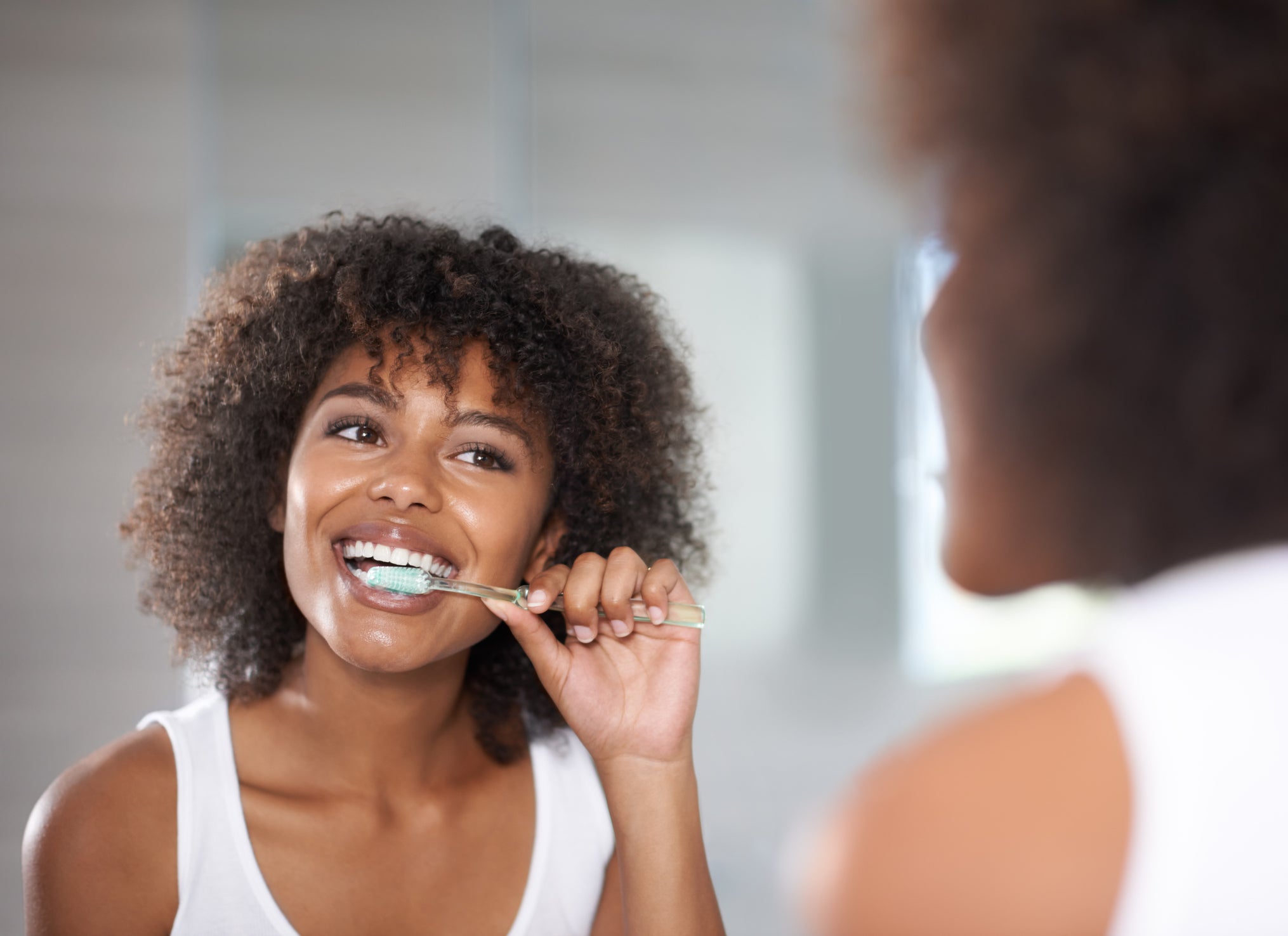
The holidays are upon us! What a whirlwind of a season, as we dash from one event to the next. Many of these events are full of rich foods and sweet treats, and there’s often no time to think about much beyond the next thing on the calendar. Whatever you do during the holidays, take care not to neglect your dental care. Here are some tips for keeping your teeth fresh, clean, and healthy, all the way into the new year!
- Make sure you’ve got healthy food in the mix. While you’re nibbling, munching, and feasting, intersperse healthy snacks with your decadent treats. Crunchy fruits and vegetables are great for your teeth, and so are cheese and whole grains.
- Take care not to overdo the sweets. This time of year, temptations are omnipresent! Popcorn balls, candy canes, and other sticky sweet treats are particularly bad for your teeth, but that doesn’t mean you have to forgo them entirely. Just stick to one dessert and then brush your teeth, to reduce your risk of tooth decay.
- Don’t use your teeth as tools. Cracking nuts, pulling out wine corks, opening packages, and all the other ways you can use your teeth instead of heading to the toolbox or kitchen drawer for a more suitable tool should be outlawed. The last thing you want to do this holiday season is end up with a broken tooth, so use your teeth only for eating and smiling.
- Drink plenty of water and keep your drinks light. Water is good for every system in your body, and it can help fill your stomach so that you don’t overeat. What’s more, it’s extremely helpful in washing away bacteria before plaque can form on your teeth. If you want to drink something other than water, steer clear of sugary beverages and choose drinks that are light-colored, as well. You’ll be doing your teeth a favor by keeping them clean and white.
- Stick to your routine. Brush your teeth at least twice a day, even if you’re on the go. Facilitate this by keeping a toothbrush and small tube of toothpaste handy at all times, in your purse, briefcase, or car, so that you can take care of your teeth even if you’re away from home.
- Don’t wait to fix any dental issues. Even if you’re out of town, don’t let a broken tooth or lost filling go without treatment. Call a local dental office for an emergency appointment; most dentists are prepared to accept visiting patients at this time of year.
- Schedule a cleaning for after the holiday season. You want to start the new year with a gorgeous smile and a healthy mouth, right? Go ahead and make your post-holiday checkup now, so that as soon as this hectic season draws to a close, you can get back into the swing of taking care of yourself.
When you’re ready to schedule your post-holiday dental check-up, choose the practice that was voted best dentist in NYC! At Park 56 Dental Group, we offer pediatric, prosthodontics, endodontics, oral surgery, Invisalign®, emergency, and sedation dentistry, all at the highest level of treatment. We serve the Midtown, Central Park, Upper East Side, Park Avenue, and all surrounding Manhattan and New York areas, with a patient-centered practice that has hours to fit your schedule. Schedule your complimentary consultation today by contacting us online or calling us at (212) 826-2322.
-
Why Your Gums Itch
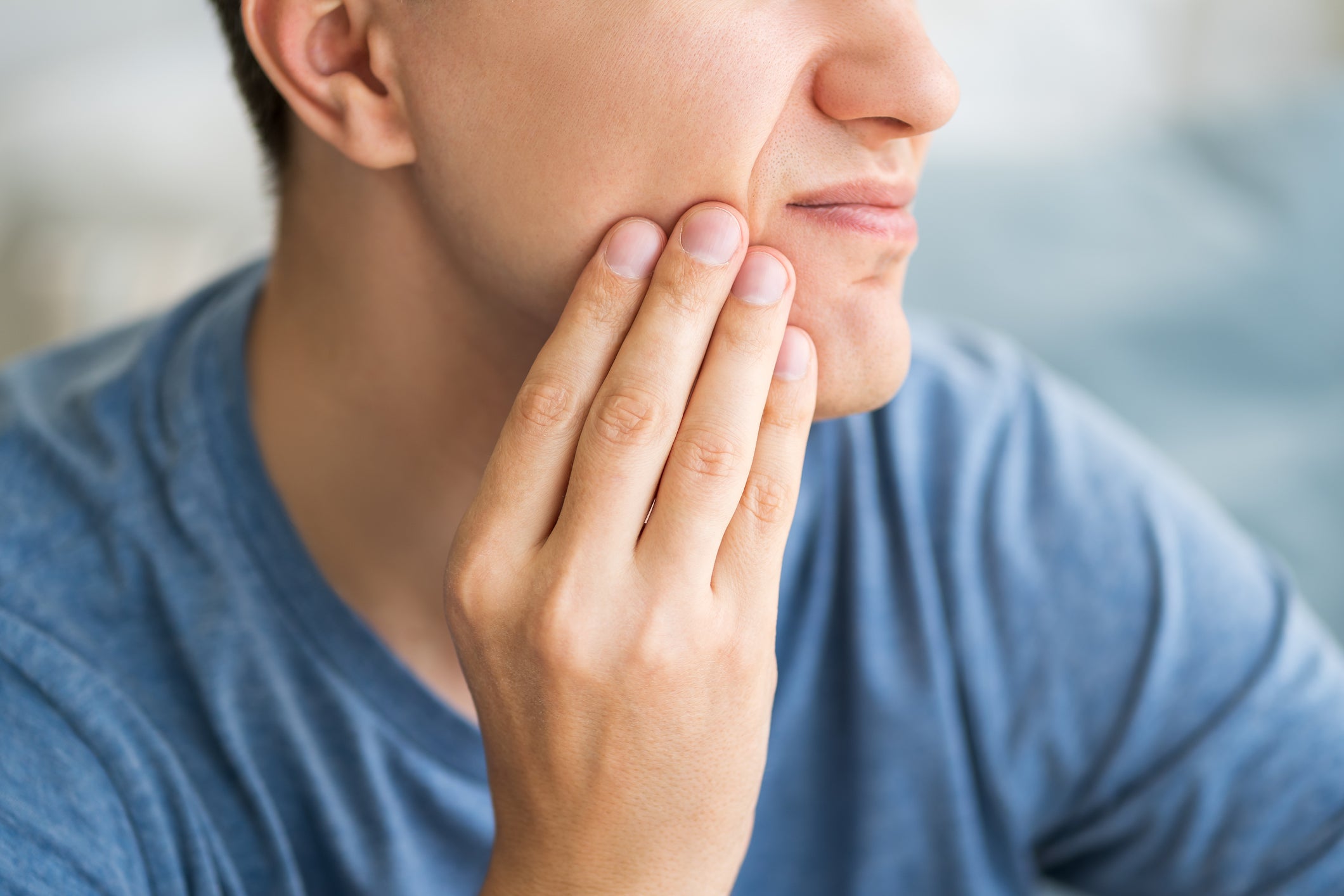
You know that feeling when your gums start to itch? The sensation can be annoying, and it might even make you a little self-conscious. But did you know that gum itchiness is actually a sign of something else going on in your mouth? There are a few different things that can cause your gums to itch. Read on to learn more about common causes of itchy gums and what you can do about it!
What Causes Gums to Itch and What Are Symptoms?
The most common cause of itchy gums is plaque build-up. Plaque is a sticky film of bacteria that forms on your teeth and gums. When plaque isn’t removed, it can harden into tartar. Tartar can irritate your gums and cause them to itch. Other causes of itchy gums include:
- Gum disease – Gum disease is an infection of the gum tissue. It can cause swelling, redness, and bleeding of the gums.
- Allergies – Allergies to food, medication, or other substances can cause itching and swelling of the gums.
- Dry mouth – Dry mouth can occur due to certain medications, medical conditions, or treatments. It can cause the gums to become irritated and itch.
Symptoms of itchy gums include:
- itching
- redness
- swelling
- tenderness
- bleeding
Are Itchy Gums a Warning Sign for a More Serious Issue?
Itchy gums are usually not a sign of a more serious condition. However, in rare cases, they may be a sign of gum disease or another oral health problem. If you have any concerns, see your dentist or oral healthcare provider.
What Are My Options for Treatment and Relief?
The best way to treat itchy gums is to remove the plaque and tartar with professional dental cleanings. Your dentist or oral healthcare provider can also recommend other treatments, such as:
- Fluoride mouth rinse – This can help prevent plaque build-up.
- Soft toothbrush – A soft-bristled toothbrush can be less irritating to your gums.
- Medications – If your itchy gums are caused by an allergy, your doctor may prescribe medication.
When Should I See a Doctor for My Itching Gums?
You should see a dentist or oral healthcare provider if your itchy gums are severe or don’t improve with home treatment. You should also see a healthcare provider if you have any other symptoms, such as:
- fever
- swelling of the face or lips
- difficulty breathing
How Can I Prevent Itchy Gums?
You can help prevent itchy gums by practicing good oral hygiene. This includes brushing your teeth twice a day, flossing daily, and using a fluoride mouth rinse. You should also see your dentist regularly for professional dental cleanings and check-ups.
How Can Park 56 Dental in NYC Help Me Treat My Itchy Gums?
If you have itchy gums, the team at Park 56 Dental in New York can help. We offer professional dental cleanings and a variety of other treatments to help relieve your symptoms. We also offer preventative care services to help you avoid itchy gums in the future. To learn more, contact us today or schedule an appointment online.
-
How a Natural Sweetener Can Help with Your Teeth

If you’re looking for a way to reduce your risk of tooth decay, xylitol may be the answer. Xylitol is a natural sweetener that can be found in a variety of products and foods. It’s also been shown to have dental benefits, including reducing the risk of cavities and gum disease. Here’s what you need to know about xylitol and its oral health benefits.
What is Xylitol?
Xylitol is a sugar alcohol that occurs naturally in fruits, vegetables, and other plant-based sources. It’s commonly used as a sugar substitute in food and beverages because it has a sweet taste but doesn’t cause the same blood sugar spikes as regular sugar. Xylitol is also used in a variety of products, such as chewing gum, toothpaste, and mouthwash.
What Products and Foods Contain Xylitol?
Xylitol is found in a variety of foods and beverages, including baked goods, candy, chocolate, fruit juices, jam, syrup, and yogurt. It’s also available as a dietary supplement. You can find xylitol-sweetened products in most grocery stores and health food stores.
How Xylitol Affects Your Teeth
When it comes to oral health, xylitol has several benefits. Xylitol has been shown to reduce the risk of cavities by preventing the growth of bacteria that cause tooth decay. It also helps to repair damaged tooth enamel. Xylitol also stimulates saliva production, which helps to keep your mouth healthy and free of bacteria.
How Does Xylitol Compare to Sugar?
Compared to sugar, xylitol is a healthier choice for your teeth. Sugar promotes the growth of cavities-causing bacteria, while xylitol inhibits bacterial growth. Xylitol is also lower on the glycemic index than sugar, so it won’t cause the same blood sugar spikes. And because xylitol is a natural sweetener, it’s a good choice for people who are looking for a healthier alternative to sugar.
Is Xylitol Safe?
Xylitol is safe for most people. However, like any other food, it’s important to eat it in moderation. Xylitol is safe for people of all ages, including pregnant women and children. However, if you have diabetes, xylitol may cause your blood sugar levels to rise. If you have any concerns about consuming xylitol, talk to your doctor or dentist.
The Use of Xylitol for Oral Health
Xylitol has been shown to be effective in preventing cavities and gum disease. It’s also a good choice for people who are looking for a natural alternative to sugar. If you’re interested in using xylitol for your oral health, talk to your dentist. They can recommend products that contain xylitol and advise you on how much to use.
Can Xylitol Restore Cavities and Reverse Gum Disease?
Xylitol has been shown to be effective in preventing cavities. However, it’s important to note that xylitol cannot reverse cavities or gum disease. If you have cavities or gum disease, it’s important to see your dentist for treatment.
Schedule an Appointment with Park 56 Dental in New York Today to Learn More About Oral Care and Wellness
If you’re interested in learning more about oral care and wellness, schedule an appointment with Park 56 Dental in New York today. We offer a variety of dental services, including preventive care, restorative dentistry, cosmetic dentistry, and more. We also offer a wide range of dental products, such as toothpaste, floss, mouthwash, and more. Contact us today to schedule an appointment.
-
What is Burning Mouth Syndrome?
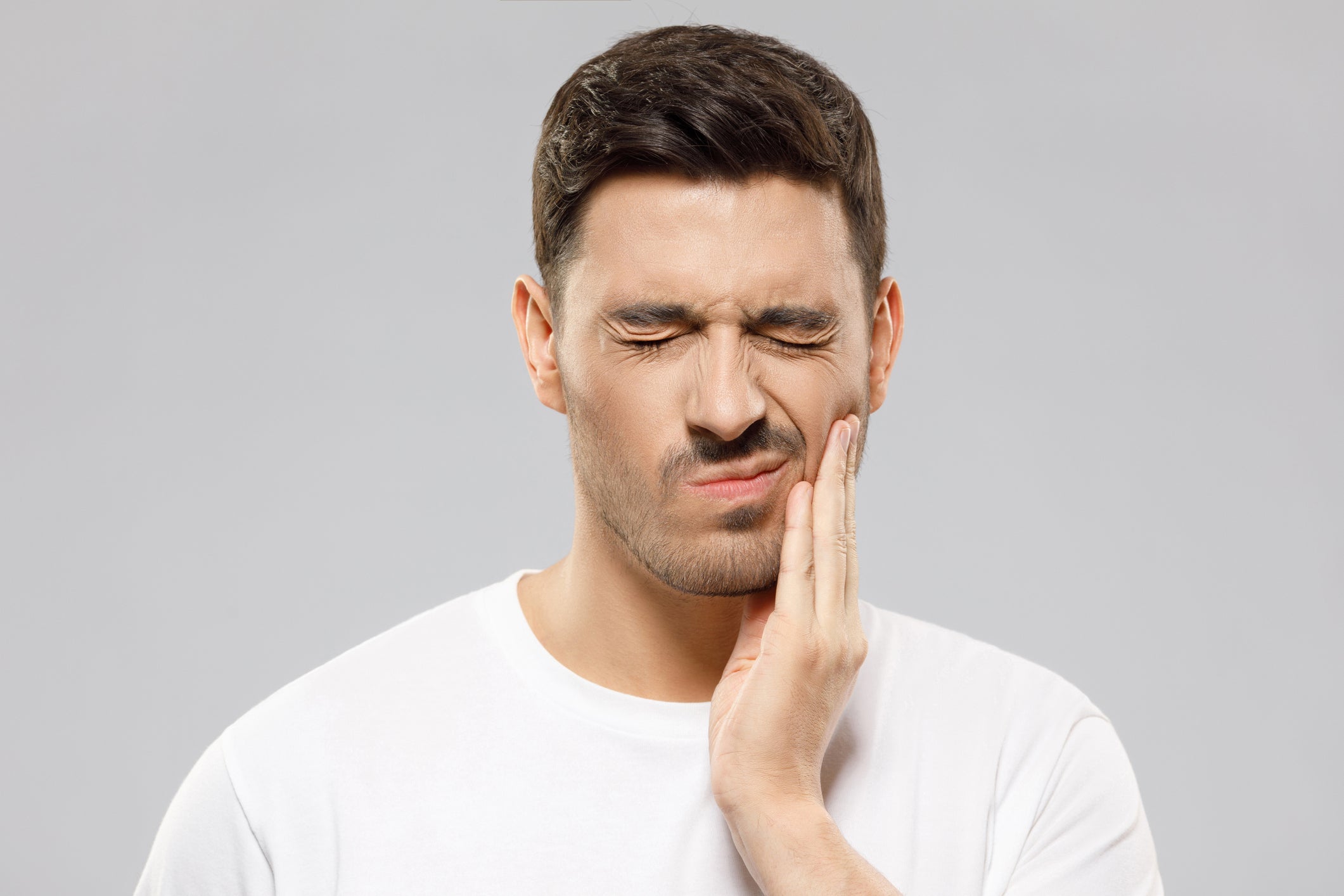
Burning mouth syndrome (BMS) is a condition that causes burning pain in the mouth. Approximately 3% of people suffer from burning mouth syndrome. The exact cause is unknown, but it is believed to be related to changes in nerve function.
Treatment typically involves managing symptoms with oral hygiene, dietary changes, and medications. In some cases, behavioral therapy may also be recommended. If you are suffering from burning mouth syndrome, you are not alone. Read on to learn more about BMS and how you can manage your symptoms to feel better.
An Overview of Burning Mouth Syndrome
Burning mouth syndrome (BMS) is a condition that causes burning pain in the mouth. It can affect the tongue, gums, lips, inside of the cheeks, and roof of the mouth. The pain may be constant, or it may come and go. BMS is also known as glossodynia, stomatodynia, orodynia, and burning tongue syndrome.
Are There Different Types?
There are two types of burning mouth syndrome: primary and secondary. Primary BMS has no known cause. Secondary BMS is caused by an underlying medical condition or medications.
Is Burning Mouth Syndrome More Common in Certain People?
Burning mouth syndrome is more common in women than men. It is also more common in people over the age of 50.
What Are the Symptoms of Burning Mouth Syndrome?
The main symptom of burning mouth syndrome is burning pain in the mouth. Other symptoms include dry mouth, bitter or metallic taste in the mouth, and sensitivity to hot or cold temperatures.
What Are the Causes?
The cause of primary BMS is unknown, but it is thought to be related to nerve damage. Secondary BMS can be caused by an underlying medical condition, such as diabetes, Sjogren’s syndrome, nutritional deficiencies, or viral infections. It can also be caused by medications, such as antidepressants, antihistamines, or high blood pressure medications.
Do Medications Cause Burning Mouth Syndrome?
Medications are a common cause of secondary BMS. Antidepressants, antihistamines, and high blood pressure medications are the most common medications that cause BMS.
How Do You Diagnose Burning Mouth Syndrome?
Burning mouth syndrome is diagnosed based on the symptoms. A physical exam and medical history are also done to rule out other conditions with similar symptoms. Blood tests may also be done to check for underlying medical conditions.
What Treatments Are Available for Burning Mouth Syndrome?
There is no cure for burning mouth syndrome, but there are treatments that can help relieve the symptoms. Treatment options include mouthwashes, lozenges, and topical creams. In some cases, antidepressant or anticonvulsant medications may be prescribed.
How Do I Prevent Burning Mouth Syndrome?
There is no known way to prevent burning mouth syndrome. However, if you have an underlying medical condition that is thought to be a cause of BMS, treating the condition may help reduce the symptoms of BMS.
How Long Does It Take for Burning Mouth Syndrome to Resolve?
The duration of burning mouth syndrome varies from person to person. In some cases, BMS may go away on its own. In other cases, it may be a chronic condition that requires treatment.
While there is no cure for BMS, there are treatments that can help lessen the symptoms. Park 56 Dental can work with you to develop a treatment plan that meets your needs. We may recommend changes to your diet, medications to help with pain or dryness, and behavioral therapies to help reduce stress or anxiety. Contact us today for a free consultation!
-
How Your Oral Health Affects Your Mental Health

Your oral health is important for more than just your teeth and gums. It can also affect your mental health. Poor oral health can make your mental health worse. For example, if you have gum disease, you may be more likely to develop depression. And if you have tooth pain, it can lead to anxiety and stress. Read on to learn the ways that your oral health can affect your mental health.
Gum Disease and Depression
Gum disease is an infection of the gums that can cause inflammation, bleeding, and pain. If you have gum disease, you may be more likely to develop depression. This is because the inflammation from gum disease can affect the brain’s chemistry and increase the levels of stress hormones in the body.
Tooth Pain and Anxiety
Tooth pain is a common problem that can lead to anxiety and stress. If you have tooth pain, it can be difficult to concentrate on work or other activities. And the pain can make it hard to get a good night’s sleep. This can lead to fatigue and irritability.
Bad Breath and Social Anxiety
Bad breath (halitosis) is another oral health problem that can cause social anxiety. If you’re worried about your breath, you may avoid social situations where you have to talk to people. This can affect your work, school, and personal relationships.
If you’re experiencing any of these problems, it’s important to see a dentist or other healthcare provider. They can help you manage your oral health and treat any problems that you may have.
Poor Oral Health and Sleep Problems
There is a strong connection between oral health and sleep quality. Poor oral health can lead to sleep problems, which can in turn worsen mental health symptoms.
Poor oral hygiene can cause gum disease, which can lead to inflammation and pain. This can make it difficult to get a good night’s sleep. In addition, tooth pain can also disrupt sleep.
Sleep deprivation can worsen mental health conditions such as depression and anxiety. It can also make it difficult to concentrate and make good decisions. Poor sleep can also lead to irritability and moodiness.
If you are struggling with your mental health, it is important to take care of your oral health. Be sure to brush and floss regularly, and see your dentist
Oral Health and Self-Esteem
It’s no secret that your oral health can have a big impact on your confidence and self-esteem. If you’re not happy with the way your teeth look, it can be hard to feel good about yourself when you smile or talk.
What to Do
There are a few ways that you can improve your oral health and reduce the impact it has on your mental health:
- Make sure to brush and floss your teeth regularly. This will help to remove plaque and bacteria from your mouth, which can cause infections.
- Visit your dentist regularly for checkups and cleanings. This will help to identify any problems early on and prevent them from getting worse.
- Eat a healthy diet and avoid sugary drinks. This will help to keep your teeth healthy and strong.
If you are struggling with your oral health, make sure to talk to a dentist at Park 56 Dental in New York. Our team can help you find the best way to improve your oral health and reduce the impact it has on your mental health.
-
How Your Teeth Can Affect Your Breathing

Do you ever feel like you can’t catch your breath? Or that your mouth is always dry? These could be signs that your teeth are affecting your breathing.
When you breathe through your nose, the air goes down your throat and into your lungs. But if you have a blockage in your nose, such as from a cold or allergies, it can make it hard to breathe. This can also happen if your teeth are crowding your mouth and blocking your nasal passages.
Your teeth can also affect how well you can take deep breaths. If they’re misaligned, it can make it harder for your lungs to expand fully. And if you have an overbite or underbite, it can restrict airflow and make it difficult to get enough oxygen.
If you’re experiencing teeth-related breathing issues, read on for more information and tips for treatment.
Misaligned Teeth and Your Airway
If you have misaligned teeth, it can affect your airway. This is because your tongue may not be able to rest properly in your mouth, which can cause obstruction of your airway. In some cases, this can lead to sleep apnea.
What Is Sleep Apnea?
Sleep apnea is a serious sleep disorder that occurs when a person’s breathing is interrupted during sleep. People with sleep apnea often snore loudly and stop breathing for short periods of time. This can cause irregular heartbeats, low blood oxygen levels, and other health problems.
There are several treatments available for obstructive sleep apnea, including lifestyle changes, mouthpieces, and surgery. If you think that your misaligned teeth may be affecting your airway, you should talk to your dentist about getting braces or other corrective treatment.
Gaps in Your Teeth
If you have gaps in your teeth, it can also make it difficult to close your lips, which can also cause snoring. Gaps in your teeth can also affect the shape of your airway. This can also lead to sleep apnea. If you have gaps in your teeth and think you might have sleep apnea, it’s important to see a doctor so you can get treated.
Missing Teeth
When you lose teeth, it can influence how you breathe. This is because your teeth help to support the structure of your mouth and jaw. Without them, your mouth may collapse inward, which can cause problems with breathing. Additionally, missing teeth can make it difficult to correctly close your lips, which can also lead to breathing difficulties. If you are missing teeth and are having trouble breathing, be sure to talk to your dentist so he can help you find a solution.
The Consequences of Mouth Breathing
In some cases, teeth may also affect how you breathe by causing mouth breathing. Mouth breathing can be caused by several different factors, including teeth that are too far forward in the mouth (known as an overbite), or by a blockage in the nasal passages.
Mouth breathing can lead to several different problems, including dry mouth, bad breath, and even difficulty swallowing. If you think you may be mouth breathing, it is important to see a dentist or doctor so that they can determine the cause and help you find a solution.
What to Do
If you are experiencing any of these problems, it’s important to see your dentist at Park 56 Dental to find out if there is anything that can be done to improve the way you breathe. In some cases, simple dental treatments can make a big difference.
In other cases, more extensive dental work may be necessary. But in all cases, it’s important to talk to your dentist about your breathing problems so that you can get the treatment you need to improve your overall health. Contact us today to schedule an appointment and start getting your z’s!
RECENT POSTS
categories
- Uncategorized
- Cosmetic Dentistry
- Veneers
- Healthier Teeth
- Teeth Whitening
- Dental Health
- Video
- Dental Emergencies
- Invisalign
- Dental Implants
- Root Canal
- Sedation Dentistry
- Infographic
- Dental Crowns and Bridges
- Dental Anxiety
- Gum Disease
- COVID-19
- Bad Breath
- New York Dentist
- Cut out sugar
- General Dentistry
- Oral Health
- Oral Cancer
- Dry Mouth
- Gum Health
- Toothache
- Dental Sealants
- Cavities



